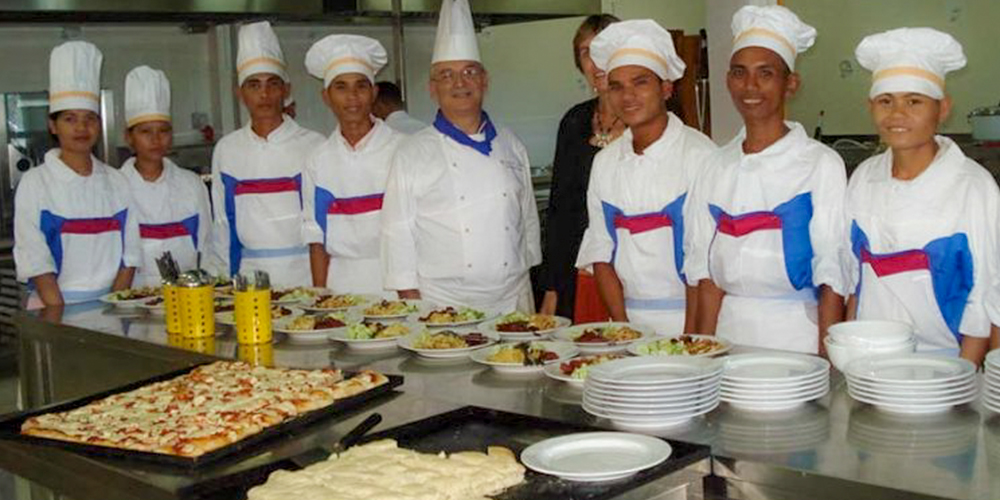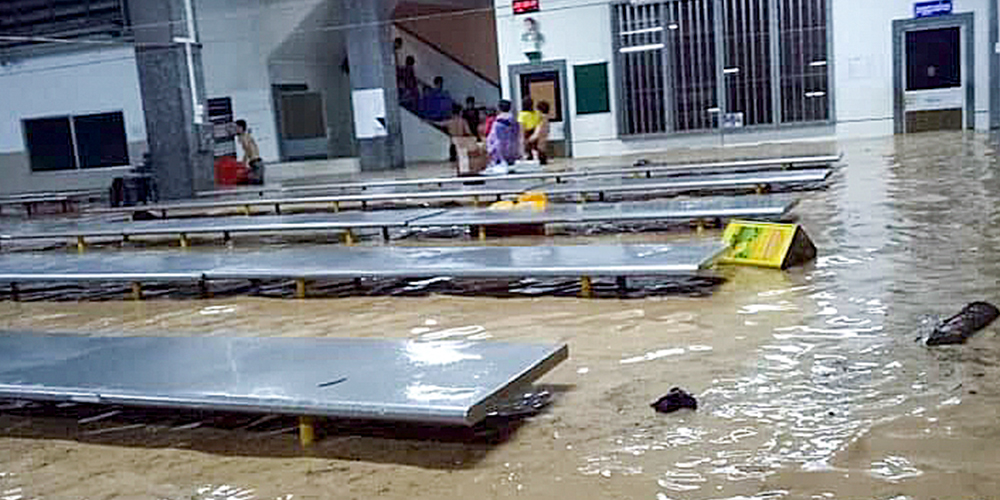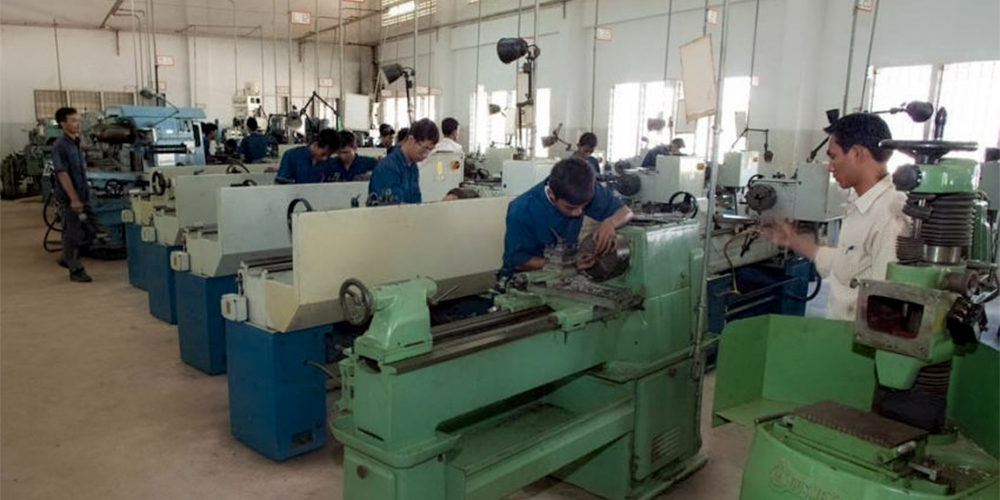“The school is not the end; rather it is the means for preparing for life” said Don Bosco and this advice is exceptionally accurate in the Don Bosco Technical School (DBTS) in Sihanoukville, a coastal city in Cambodia’s south-west.
Recently, students at DBTS attended a practical workshop which was conducted to prepare them for employment after completing two years of studies.
The school is dedicated to helping Cambodia’s underprivileged youth gain employment and live with dignity in their society, lift them out of poverty and guide them to a worthwhile and fulfilling existence. It utilizes the Salesian Preventive System in everything that it does, a teaching method founded by Don Bosco that focuses on love rather than punishment.
This has fostered an extremely positive environment at the school, where the students are supportive and caring towards one another. Not having to worry about conflict or bullying allows the students to focus their energies on their studies, as well as teaching them how to be model citizens for after they leave the school.
DBTS provides two-year courses for students who both passed or failed their national high school examination. In 18 years, the school has had 5,651 students, of which 95% have secured decent jobs, 3% go onto pursue higher education and the remaining 2% founded their own business.
Employers of the school’s graduates are often very impressed with the breadth of knowledge and quality of skills that their new employees have. This has led to the school earning a widespread reputation amongst the general public as being an institution that moulds the highest quality young people.
The full-day course is tailor-made to train Cambodian youths to be employment-ready. This year, 337 students are learning the skills they need to become electricians, auto mechanics, technicians, secretaries, and hotel employees.
 Culinary students learn some of the arts of fine dining as they study to gain employment in Cambodia's burgeoning tourism sector.
Culinary students learn some of the arts of fine dining as they study to gain employment in Cambodia's burgeoning tourism sector.
Students who are accepted into the school have the choice on whether to become a boarder and move into the dormitory onsite or remain living offsite. Those who choose to stay in the dormitory follow a church schedule and participate in peer study programmes, group work and cleaning rosters.
The students that live at the school pay no extra cost to do so and all students receive three free meals a day and grand excursion once or twice a year. Classes are also offered in English or computer usage and some students even find part-time work around the school to support themselves without adding to their families’ burdens.
The majority of the funding for the school comes from Australia, Germany, the Netherlands, Italy, the US and Hong Kong. Across the board however, donations are drying up and putting the school into a difficult position.
“With declining donations and the recent terrible floods which happened twice in a short period, damaging the school’s furniture, equipment and study materials, we are facing a tough time. We are struggling to recover from the loss which amounts up to $500,000,” said the school’s Principal, Ouch Sambo.
 Students flee to saftey of higher ground from the floods that devastated Don Bosco Techinical School last month.
Students flee to saftey of higher ground from the floods that devastated Don Bosco Techinical School last month.
Like the other Don Bosco Schools in Cambodia the average school day follows a stringent routine. Everyone in the school gathers at 7.30am to sing the national anthem, and receive a formative morning talk from the teachers or school management team and once this is complete, they head to their first classes of the morning.
At 12.30pm, students have lunch in the school canteen and ensure the area is left spotless. Classes then recommence and once the clock its 4:25, all students assemble one final time for the day, as they receive any pertinent advice and a brief on the following day’s activities.

Are you able to support the incredible work at the Don Bosco Technical School?
For more information, click here

